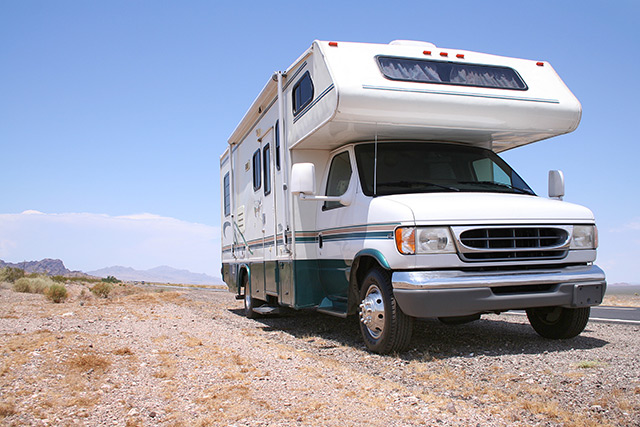
Don't overlook the small everyday preps. They will prove useful even in situations that don't involve SHTF. For example, taking the time to make little preps for automobiles will save the hassle of calling for a tow truck to replace a flat tire.
Most prepping skills center on TEOTWAWKI scenarios. However, there are also smaller preps that not only help in an emergency but also contribute to everyday living.
Automotive preps cover anything related to a ground vehicle. Be it a car, pickup truck, or RV – it doesn't have to be a dedicated bug-out vehicle. But both the vehicle and its driver must always be prepared.
Emergencies like low tire pressure may take place at any given time. They are not necessarily SHTF scenarios — they only get scary if they take place hundreds of miles away from the nearest human presence, but a prepper must be ready for these events nevertheless.
Upon getting a vehicle for the first time, test its low-pressure tire system, if it has any. Figure out the PSI level that triggers the sensor. (Related: Can you survive after a massive power outage?)
Helpful auto preps for low pressure and flat tires
Preppers keep an everyday carry (EDC) kit on their person or near them at all times. They must also make an EDC kit for their car that will handle any foreseeable events.
Always load a full-sized spare tire on the car. Carry a changing kit as well. If the vehicle did not come with either equipment, get them as soon as possible.
If the vehicle has an inflation notification system, hook up the tire to it. Let the computer keep an eye on the pressure in the spare tire, as well as the four tires mounted on the wheels.
Never forget or neglect to perform a manual check-up of all of the tires regularly. Inspect each wheel by hand during every oil change and before any long drive.
Always keep high-quality and safe tires on the vehicle. Get replacements as early as possible before the tires reach the end of their service lives.
In addition to the spare and changing kit, other items in the EDC car kit for a flat tire scenario include the following:
- A tire gauge
- A jack and a 4-way lug wrench
- A spare, non-monitored valve stem to replace malfunctioning sensor valves
- A can of Fix-A-Flat for the occasions that more than one tire goes flat
- A high-end 12-volt portable air compressor
- Road marker triangles, road flares, or LED flashing lights
- Multiple waterproof light sources that will work in rainy and wet conditions
- A rubber mallet to help remove a wheel that got stuck on the brake drum
The equipment listed above will fit in the spare tire compartment of a small car. Add other items based on earlier, personal experiences while driving. Bring a cellphone to call for help.
Other small preps for your vehicle
If the budget allows for it, get a paid membership in the American Automobile Association (AAA) Premier. It's pricey, but it also provides roadside service in most areas as well as one tow of up to 200 miles and three tows of up to 100 miles. Preppers who live out in the countryside will need those long-distance tows if their vehicle breaks down. Of course, make sure AAA serves the region in the first place.
Don't forget to bring more than enough emergency food and water on trips, especially when driving on country roads. Keep a blanket in the car for any scenario that calls for sleeping in the vehicle. Likewise, store a change of fresh clothing and a set of rain gear in the car.
Sources include:
BeansBulletsBandagesAndYou.com
Please contact us for more information.















